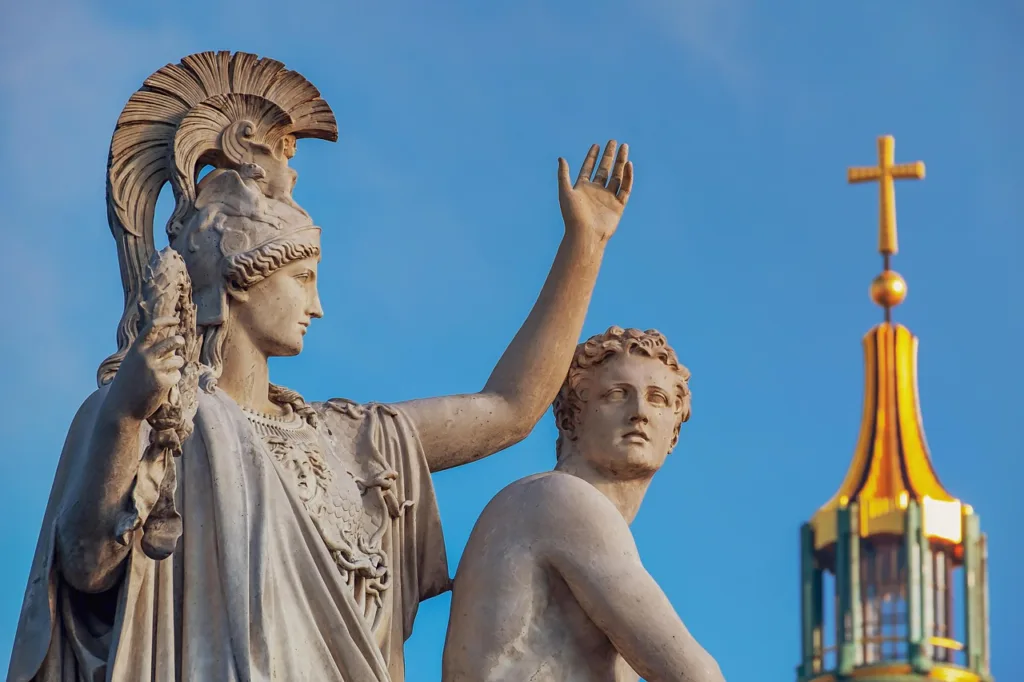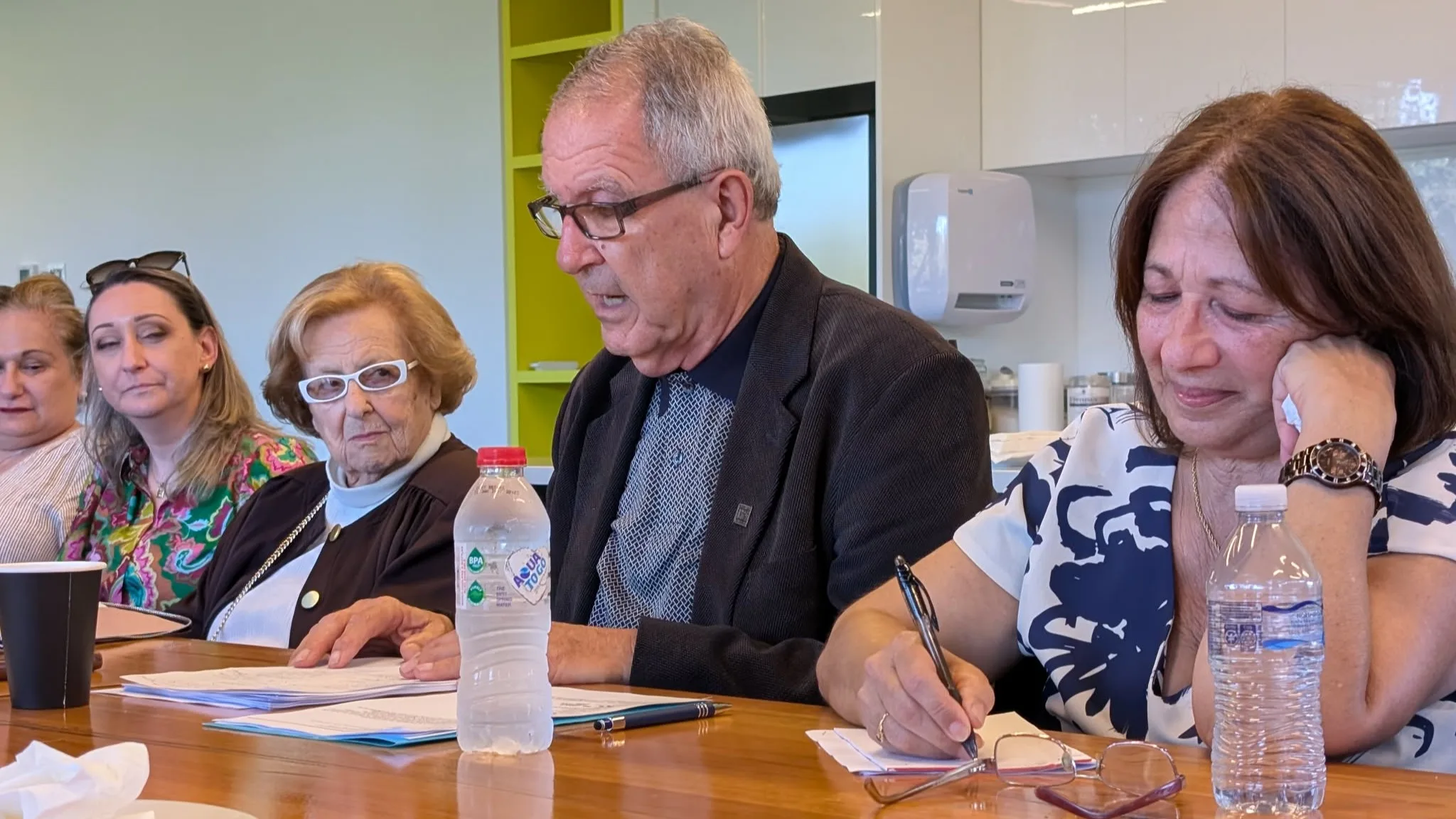Alarm has swept through Victoria’s Greek community after The Age reported that Classical Greek and Classical Studies may be among several low-enrolment VCE subjects earmarked for “retirement” by the Victorian Curriculum and Assessment Authority (VCAA).
The reaction intensified when Professor Anastasios Tamis, Director of the Australian Institute for Macedonian Studies and one of Australia’s leading advocates for Classical education, revealed he had received information indicating the VCE Board is already seriously considering abolishing these subjects, despite no public updates from the VCAA.
“I have just been informed that the VCE Board of Studies has announced it is seriously contemplating abolishing Classical Studies and Ancient Greek as subjects for university entry examinations,” Tamis told The Greek Herald.
“Universities are adopting student-demand driven subjects based on market expectations, rather than true education that cultivates knowledge, skills and values.”
The lack of official communication has only deepened concern.
Professor Tamis has taken a leading role in rallying opposition. In a detailed letter sent to major university benefactors, he warns that eliminating Classical Greek and Classical Studies at VCE level would sever critical academic pathways and undermine the study of Western civilisation in Australia.
“This will not stand,” he told the Greek Herald. “All the schools teaching Classical Greek, the University [of Melbourne], the Tatoulis and Stamoulis families, we will not allow the Board to cut these subjects. We have a moral obligation to intervene. The decision must be reversed.”
According to Tamis, dismantling these subjects would not only affect high school students but also destabilise university humanities departments that rely on VCE Classics for future enrolments.

Uncertainty, whispers, lack of transparency
The VCAA has made no formal announcement. Yet even the rumour has sparked urgent meetings among teachers, academics, school leaders and community organisations who fear that losing Classical Greek would sever a cultural and intellectual lifeline.
The subject is reportedly on a list of nine VCE languages with fewer than ten students enrolled last year, including Hungarian, Swedish, Indonesian First Language, Armenian, Auslan, Bengali, Korean First Language and Classical Hebrew.
Teachers who spoke to The Greek Herald said they had “heard whispers” and informal concerns but had received no briefing or consultation.
The issue resurfaced during a working group for World Greek Language Day (9 February) at Alphington Grammar on Tuesday, November 25 where The Greek Herald was the only community newspaper in attendance. Community members openly questioned how Classical Greek could survive a review focused on efficiency and cost-cutting rather than cultural value.
Scathing review could trigger subject cuts
What is happening to Classical Greek does not exist in a vacuum.
It follows a damning independent review into the VCAA, commissioned after last year’s VCE exam breaches, which found the agency suffers from “bad governance, management failures and a culture of fear.”
Stage 2 of the report, released by governance expert Dr Yehudi Blacher, made direct recommendations that now place low-enrolment subjects, including Classical Greek, under immediate scrutiny.
His report had 11 recommendations and 41 sub-actions. The report found the VCAA:
- had an unsustainable subject load (116 VCE subjects)
- is drained by low-enrolment subjects
- should review and potentially retire low-enrolment subject (and possibly deliver this through alternative models such as university partnership subjects or unscored ATAR contributions)
- assess languages with fewer than 15 students.
Blacher specifically recommended that the Education Department and VCAA “review the financial sustainability of the current subject load, with particular focus on low-enrolment subjects, and assess whether these subjects—such as Classical Greek and Classical Studies—should continue in their current form or be delivered through alternative models, including university partnerships or unscored contributions.”
These recommendations directly place Classical Greek and Classical Studies at risk, as both currently fall far below the threshold.

Following the review’s release, Deputy Premier and Minister for Education Ben Carroll announced further investigations into VCAA processes. Meanwhile, new CEO Andrew Smith stated: “The VCAA welcomes this report, and we accept its findings and recommendations. We acknowledge that major reform is needed.”
The VCAA has confirmed it will consult stakeholders before making changes, but the timing of the review alongside the leak about subject cuts has accelerated community anxiety.
Global crisis in humanities
Tamis’ letter places the issue within a worldwide decline in support for the humanities. Across Australia and internationally, Classics departments have faced cuts, staff losses and shrinking enrolments as funding models increasingly favour STEM and vocational training.
This trend inspired the creation of the Ramsay Centre for Western Civilisation, funded by a $3 billion bequest from the late Paul Ramsay, aimed at revitalising “great books” education.
Greek-Cypriot researcher and author John Milidis says the threat to Classical Greek is part of a broader structural problem.
“Even Modern Greek is dropping,” he says. “If we hadn’t had migration from Greece during the financial crisis, we wouldn’t have the 170 students we have now. It’s capitalism. Subjects survive only if they make money.”
Academic Anna Hatzinikolaou echoes that the issue goes deeper than enrolment numbers.
“The importance of Greek lies in the fact that it is the base of many languages,” she says. “If you want to learn good English, learn Greek. Humanities should not be optional add-ons. We need mandatory electives. We are already late.”

Students feel the loss before it happens
For students like Costas Vardavakis, a Year 10 student undertaking Year 11 Classical Greek at the schools of the Greek Community of Melbourne (GCM), the subject has been transformative.
“I did it because a friend encouraged me, and because I wanted to understand the language my family grew up with,” he says. “There are only three of us in my class. It’s surprising more students don’t do it.”
He believes reduced scaling has discouraged enrolments. “It used to scale up by nine. Now it only scales up by five. The VCE Board isn’t encouraging the subject, and it’s making it harder.”
Though he hopes to pursue commerce and law, Classical Greek has shaped his worldview and strengthened his Greek identity.
He adds that at schools like Xavier College, there are Classical Greek students who aren’t of Greek background. They take it out of genuine intellectual interest.
What’s at stake?
If Classical Greek and Classical Studies are removed from the VCE, Victoria would lose one of the last remaining school-level pathways into Classics in the entire country. Community leaders warn this could accelerate the collapse of Classics at university level and undermine Victoria’s reputation as a multicultural state that values language diversity.
Professor Tamis is unequivocal: the community will not accept the decision.
“We are speaking about the roots of democracy, philosophy, science, theatre, ethics—everything that shaped the modern world,” he said. “To abandon Classical Greek is to abandon a part of ourselves.”
For now, the Greek community is mobilising, contacting benefactors, preparing public statements and demanding transparency from the VCAA before any decision is made that could reshape the future of humanities education in Victoria.
Comment from a spokesperson for the Victorian Curriculum and Assessment Authority:
No changes will be made to the available VCE studies in 2026. The VCAA will consult with stakeholders prior to implementing any changes to the studies offered as part of the VCE from 2027.
